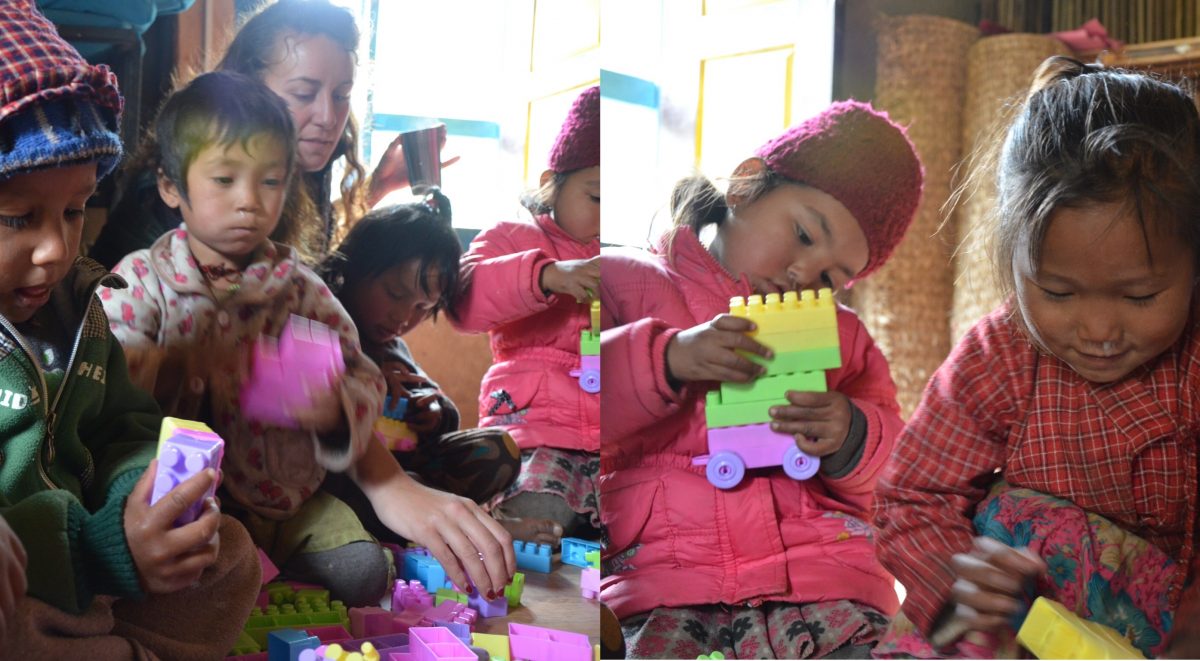
“The Formative Years”
Our pre-school started with 20 children in 2014, two teachers and a caretaker. Parents and community members were all involved in the first few weeks, as we worked out a routine and got to grips with having to look after children who had never been away from home for a few hours a day. Initially starting in any institution can be a scary experience, and many mothers, fathers, grandparents stayed with us in the initial months to make it a more comforting experience for all involved.
What constitutes pre-school learning and environment? What is the best approach to educate pre-school children? Having established our school and started running classes, we knew we needed advice and experience from those who had knowledge on how best to approach running our school. It really was a collective and learning experience for our teachers, committee members, parents and locals. Having a routine that children can adapt to was first and foremost, and teaching them about simple rules such as attendance and timekeeping became the first order of the day. Bit by bit, as children became accustomed to the staff and vice versa, a routine slowly crept in, including playtime, tiffin time (lunch), rest time etc . . .
Nagarhope opened its school in an area where parents and villagers were largely uneducated, and of those that were, very few had studied past primary level. In Nepal, government schools are generally perceived as underperforming, where as ever-sprouting private institutions are performing far better. Nagarhope Basic School is essentially a private school, but differs in that it was set up by forming an Education Trust to found the school, which in turn, with the management committee, run the school from day to day.
Pre-primary schooling is the introduction of the education system to young children. What that involves is based on the school’s management / staff / curriculum etc. Our experience in the Nepali education sector, taking into account both government and private run institutions, is that children need not only theoretical education, but practical methods and a range of extracurricular activities to stimulate them such as art, sport, music, rhymes and dance.
Instilling the above into young minds is not just a particular mindset or duty, it should be a carefully planned routine that caters to students and staff alike to suit their individual and collective needs, and one that is constantly revised to improve the quality of education year by year.
Teacher training is also a big part of what we try to achieve. Not all of the teachers employed in our school are fully trained teachers, and from time to time, either calling teacher trainers to the school, or sending individual teachers on training courses, we are always trying to improve the level and knowledge of our staff, individually and collectively.
